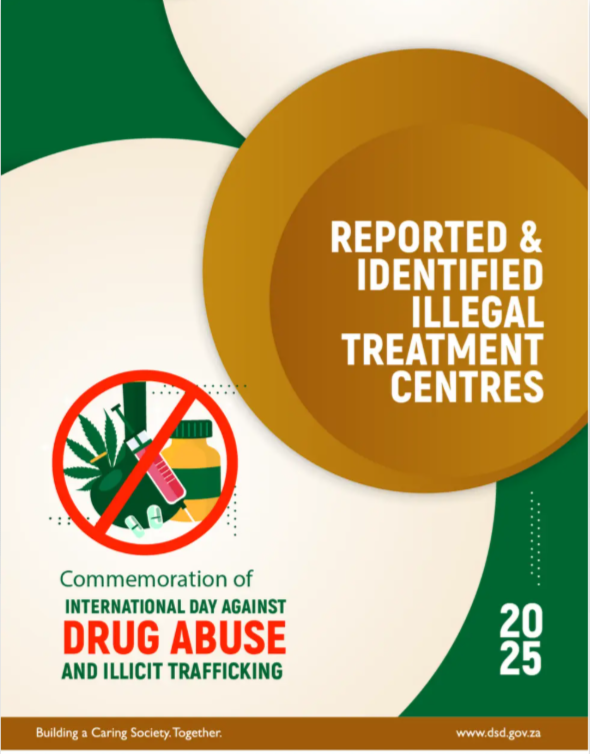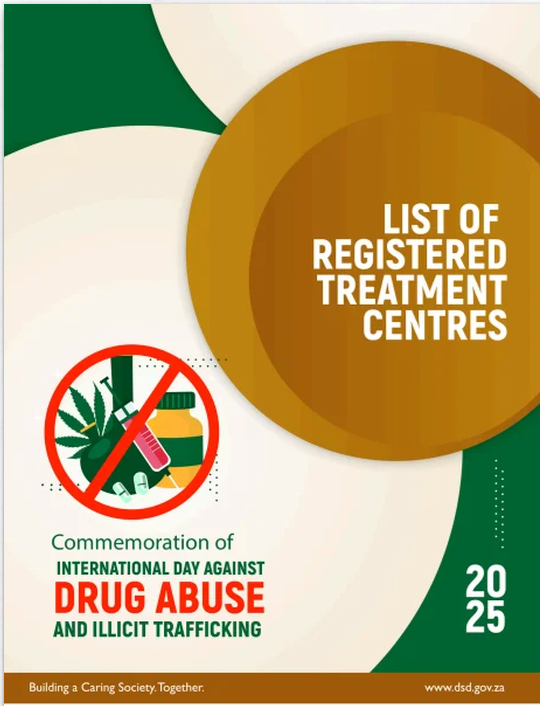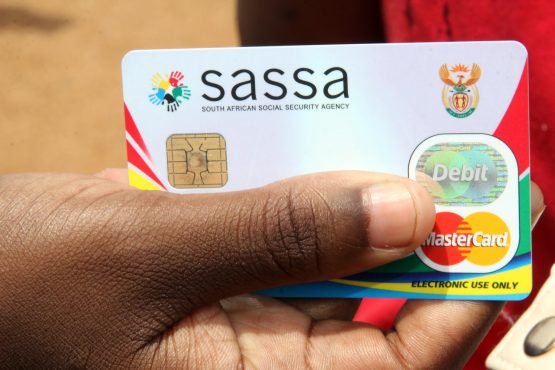10 July 2025 I CAPE TOWN
Honourable House Chair;
Minister of Social Development, Ms. Sisisi Tolashe;
Chairperson and Members of the Portfolio Committee on Social Development;
Distinguished Guests;
Ladies and Gentlemen; and
Fellow South Africans.
Under a Government of National Unity (GNU) as a member of the Leaders Forum headed by His Excellency President Cyril Ramaphosa, President of Al Jama-ah Political Party, and the Deputy Minister of Social Development, I am presenting Budget Vote 19 today.
KEY DEPARTMENT OF SOCIAL DEVELOPMENT (DSD) DELEGATIONS
Before commenting on the budget, let me state that during October 2024, I received key delegations from my Minister of Social Development, Hon. Minister NG Sisisi Tolashe; these are: HIV/Aids, Substance Abuse, Families & Parenting, Older persons, and Persons with Disabilities. These functions form part of Welfare Services, which is Programme Four in the national Department of Social Development’s budget. Welfare services are concurrent functions with provinces, and the provinces are responsible for the implementation of the government’s policies and the delivery of services in relation to these functions. The national department’s welfare services mandate is to develop policies and programmes, set norms and standards, and monitor and evaluate service delivery by the provinces and the funded non-profit organisations. The Minister also delegated responsibilities for the Regional and International Protocols, Conventions, and Treaties that the country has acceded to in these areas of welfare services.
As regards each of these, whenever I needed assistance, I could call upon the Minister who unselfishly granted her time advising and assisting me.
BUDGET ALLOCATION: 2025/2026
Hon members, for my list of delegations as Deputy Minister, the budget allocation to the national Department of Social Development is R109 million.
Allow me to briefly unpack how much money the department must use to effectively implement my list of delegations. Starting with HIV/Aids, the budget is R44 million, of which the South African National Aids Council, receives R20 million.
Turning to South Africa’s National Drug Master Plan (NDMP), Substance Abuse was allocated R19 million; from this, R2.1 million is allocated to the South African National Council on Alcoholism and Drug Dependence and R2 million to the South African Depression and Anxiety Group.
Hon members for the past few months, I dedicated myself to my delegation that focuses on the Older Persons which is allocated R18 million, a portion of the total will be allocated to the South African Older Persons Forum (R1.7 million), and the Association for Dementia and Alzheimer (R1 million).
For Families and Parenting, the budget is R10 million; This includes allocations to the Suid Afrikanse Vroue Vereeniging of RR 809 thousand and Tumelong -of R1,3 million .
Now the budget for Persons with Disabilities is R18 million, of which the Deaf Blind SA is allocated R1.8 million, Autism SA R1.7 million, and Uhambo Foundation R1.6 million. Factoring in the total amount, one third is allocated to entities that are outside DSD.
Allow me to make the point that since I will be implementing these delegations, which is guided by the five-year 2024-2029 Medium Term Development Plan (MTDP) programme, only two-thirds of the budget is used by DSD. It’s been a long standing practice that welfare services are rendered by the government in partnership with non-profit organisations and NGOs. This creates the potential to leverage the comparative strengths of each sector in a unified system that optimally benefits all the vulnerable individuals and groups in our society. It also creates the opportunity for private sector involvement.
It is high time that we recognize the failures in the system, and revisit our practices and partnerships to find ways to build a system that won’t fail our people, one that everybody can rely on when in need.
I want to hastily add that we depend on DSD’s Portfolio Committee and on the Oversight Committee for Social Development that represent the streets to ensure that the allocated budgets are used to meet people’s needs.
Overall, my task, Hon Chair, is to determine policy and programmes; ones that all stakeholders should be involved in. In other words, policies that are determined by the president, the cabinet, and the cabinet cluster as well as the GNU’s leadership forum. That said, it is my job to enforce these policies that apply to DSD, provinces, municipalities, NPOs, and CSOs. Let me underline the fact that I will make a special effort to ask the private sector to agree that when they give funding that these policies be aligned with adopting a ‘One Policy, One Plan, One Budget’ approach.
At this juncture, I wish to summarily reflect on each of the mentioned delegations; the purpose is to offer some insights into the issues encountered in each; here I start with the HIV/Aids pandemic that we continue to deal with on an annual basis.
MITIGATING HIV’s IMPACT AMONG CHILDREN AND ADOLESCENTS
Honorable Chair and members, there is a challenge to end the HIV/Aids pandemic in South Africa by 2030, with a particular focus on the children and adolescents who remain most vulnerable to its devastating effects. According to the latest UNAIDS data, over 150,000 children are living with HIV in our country, and more than 6,500 were newly infected in 2023. We need to stem the tide of 10,000 children being infected by this scourge every year.
Accelerating efforts of protecting children, last month, I worked side-by-side with Hon. Minister during the Child Protection Month. DSD reached out to parents and 500 children in Mohlabaneng and Jamela villages in Tzaneen, Limpopo Province. The aim was to raise awareness against HIV/Aids as a chronic disease and initiate ‘Social Behavioural Change’ programmes, namely, ‘You Only Live Once’ (YOLO) and Chommy. Hon. Members, we hope programmes capture your imagination. Ending the HIV/Aids among children and adolescents require a change in societal attitudes in the way they perceive this epidemic. This is a challenge not only to all of government but to all political parties.
This budget, which I am requesting approval thereof, will help us to contribute to the implementation of the National Strategic Plan on HIV/AIDS & TBse pillars.
GENDER BASED VIOLENCE AND FEMICIDE
Leaving aside the issue of HIV/Aids, our society has been challenged by the curse of Gender Based Violence and Femicide (GBVF); it is a social phenomenon that has been and continues to be on the rise; as a result, our children, our women, and the LGBTQIA+ community including elder persons remain vulnerable and live-in fear of becoming the next victims.
At one of my community engagements recently, a second-year university student wanted to know what government is doing to ensure her safety. As patron of the Men’s Parliament, I have launched the ‘Boy Child Parliament’ and we already have a provincial structure in Gauteng Province. To prevent violence by men against women, we must start with the boy child.
FAMILIES & PARENTING AND ELDER PERSONS
In the fight against GBVF, we also noted the increase in the abuse of the older persons in households and communities. Nonetheless, we are resolute that the vulnerable in these sectors must be protected through collective efforts between Government, Private Sector, NPOs, Communities, and Families.
The department is aware of the immense challenges our elders face when collecting their pension; queuing from 05h00 in the morning is unacceptable as well as the long queues, this too is an abuse of the elderly. We will come up with measures to effectively address these.
The department recently launched the revised White Paper on Families and re-launched the ‘Family’s Matter Programme’ in Milnerton, Cape Town, to remind South Africans that families are the first line of protection in communities.
Honourable House Chair and Members, the abuse of older persons has no place in our communities; they have gone unprotected instead of being taken care of and protected. Communities and families have a duty to report elderly abuse to law enforcement, the National Helpline for Elder Abuse, and the Gender Based Violence Command Centre.
In this regard, Minister Tolashe went to Eastern Cape’s Healdtown; an area from where quite a few resistance fighters came from. During the last few years this town has since been identified – sadly so - as a hotspot for the abuse of elder persons.
So, I remain committed to address the abuse of older persons and we will make sure that every cent of this budget is spent to counter these unsavory acts.
As I wrap up the discussion on Families and Parenting, permit me to inform everyone that we have a positive parenting programme funded by the German Development Bank. Through this programme, One thousand, and Eighty-Eight (1,088) children and youth were trained in soft and hard skills in 6 Community Care Centers (CCCs) in KZN, Limpopo, and North West provinces. Such programmes will be expanded to a further 17 CCCs and this work has already begun, since last month (June 2024).
Parents were also engaged in positive parenting programmes through both in-person sessions and digital platforms. Both Positive Parenting Programmes to have an impact towards reducing the prevalence of HIV/Aids. And in the light of the withdrawal of PEPFAR funding, we need to find something similar to a German funding model, and we call upon other potential funders to come on board.
SUBSTANCE ABUSE
On the local front, the department is working diligently to rather eradicate substance abuse – since its ultimate goal - reduce substance abuse and its related social problems through prevention programmes in the institutions of higher learning, focusing more on TVET colleges, and communities. This year, the department is targeting to reach 40 institutions of higher learning nationwide through anti-substance abuse programmes; and I will be part of the next outreach to institution of higher learning.
However, I am of the opinion that preventive programs should start at primary school level, taking into consideration that children as young as 8 years old are using drugs. The issue of gangsterism which is a major contributing factor to illicit drug trade, should be effectively dealt with by the relevant department. Our efforts will also focus on this age group.
On the global front, I attended an International Network of Legislation on Drugs in Vienna; a conference that would assist me to align the new five-year National Drug Master Plan (NDMP) with international best practices.
Heads-up on best practice is that our prisons should not become locales for our women and children drug offenders; connected to the rights of these sectors of our communities, I intend to use the budget to prevent and treat both substance and drug use. Speaking about the rights of our vulnerable groups, my concern is also with the ‘persons with disabilities.’
PERSONS WITH DISABILITIES
In the context of the Bill of Rights, the Constitution, and the White Paper on the Rights of Persons with Disabilities, we successfully handed over disability reports arising out of public participation across all nine provinces to mainstream the rights of persons with disabilities.
As a result of the handover in the Western Cape, over twenty programmes to assist persons with disabilities are in progress. Other provinces have also addressed the status of this group that, by implication, also impacts on family members who are disabled and families who reside on farms where the rights have been taken away in wanting to live descent lives and wishing to earn descent wages.
OTHER: RIGHTS OF FARM WORKERS
Chairperson, I have been engaging with persons living in the farms in the Cape Winelands District specifically in Paarl and Wellington within the Drakenstein Municipality. Some were evicted from their native land and dumped in already overcrowded areas to the increasing rate of informal settlements. Evictions and displacements have a vast negative socio-economic impact on farm workers and dwellers. There are farm owners who continue to harass matriculants who do not want to become farm labourers, to leave the family home or to pay rent.
Their concerns have been escalated to relevant departments and the South African Human Rights Commission, as no South African, including farm residents deserve to be exploited while the Freedom Charter made a genuine promise that: “The land shall be shared among those who work it!”
TOWARDS A CONCLUSION
As I come to a conclusion with this presentation, I wish to briefly touch on two matters.
The first, South Africa has created the most inclusive social protection system; one that addresses all areas of vulnerability. In addition, it is also responsive to the needs, realities, conditions, and livelihoods of those who are most at risk including children. As regards the latter, the system protects the child from the moment she/he is formed in her/his mother’s womb until she/he reaches the age of 18 years (and beyond).
And the second is that the South African government has constructed the District Development Model; a model that geographically covers the whole of the country. I, as the DDM Champion for Johannesburg, wish to argue that this budget must also address my delegations’ shortcomings in this metro; the main purpose of doing so is to transform the city into an iconic city that it once was. Factoring in this idea, I will need the backing from the province and the municipality, which I already met, as there must be a ‘ONE BUDGET AND ONE PLAN’ for this.
Hon Chair and members, my position, as I stand and conclude, is that I am in full support of the 2025/26 pro-poor budget of R283 billion.
Thank you




